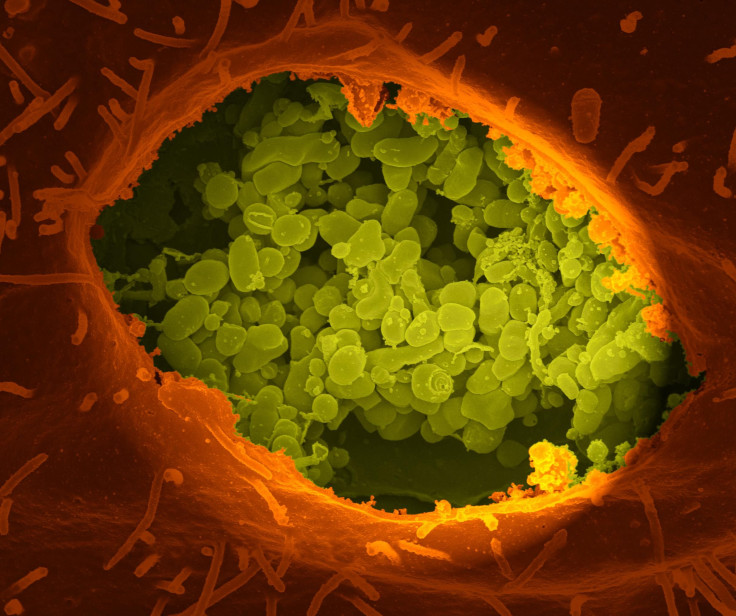Pentagon To Develop Q Fever Vaccine; U.S. Military To Focus On Biological Weapons Defense

Next month, the Pentagon will host a seminar for researchers interested in developing a vaccine for the virus that causes Q fever, an animal-borne illness “weaponized” first by the U.S. and then the Soviet Union decades ago.
Long after the U.S. officially dropped its chemical and biological weapons program in 1969, some troops returned home from deployment to Iraq had contracted the infectious disease, caused by Coxiella burnetii. “Approximately 200 cases of acute Q fever were reported in U.S. personnel who had been deployed to Iraq since 2003,” the Centers for Disease Control and Prevnetion reports. “Investigation of these cases linked illness to tick bites, sleeping in barns, and living in helicopter zones with environmental exposure from helicopter-generated aerosols.”
Although mistaken about other weapons of mass destruction in Iraq, American intelligence services believed Saddam Hussein had at one point attempted to weaponize the virus, classified by the CDC as a class B bioterrorism agent — one that’s fairly easy to disseminate but not as lethal as anthrax or smallpox.
What makes Q fever potentially dastardly is its low profile, with symptoms so subtle they might be missed: fever, fatigue, and muscle pains. Not intended to decimate, the weaponized disease sickens and slows an enemy, degrading his capability over months or even as long as several years.
First described by investigators in Australia in 1937, Q fever occurs worldwide with acute and chronic stages. However, only a small percentage of those infected eventually die from the disease. Infection in humans usually occurs by inhalation of bacteria from air contaminated by the excreta of herd animals such as pigs and sheep, although some cases develop from tick bites or the ingestion of unpasteurized dairy products.
Until now, the U.S. has not developed a vaccine. The most effective form of treatment for acute cases relying on doxycycline, an antibiotic. The federal government first mandated reporting of Q fever by doctors in 1999, following which doctors reported 17 cases in 2000. In 2008, 167 cases of the disease were reported.
In 2011, the Pentagon approved a serology diagnostic test for the disease. Military Times reported on Friday that the Pentagon remains “intently focused” on the potential threat of chemical and biological weapons, according to records. In October, the military announced funding for the development of two other bacteria classified as bioterrorist threats, Burkholderia pseudomallei and Francisella tularensis.
Published by Medicaldaily.com



























